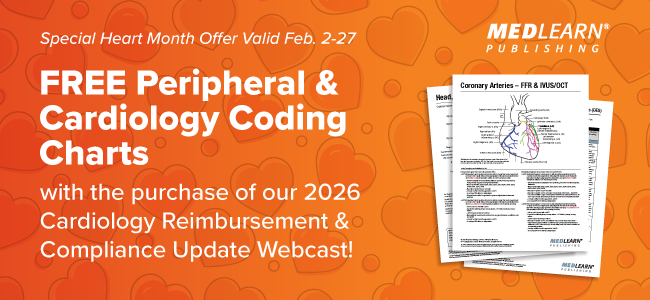
Heart Month 2026: Letter From The Publisher
Here at MedLearn, we know cardiology coders are the unsung heroes of patient care. Every day, as a cardio coder you navigate complex cardiovascular procedures, including the constantly –changing CPT® and ICD-10-CM






















